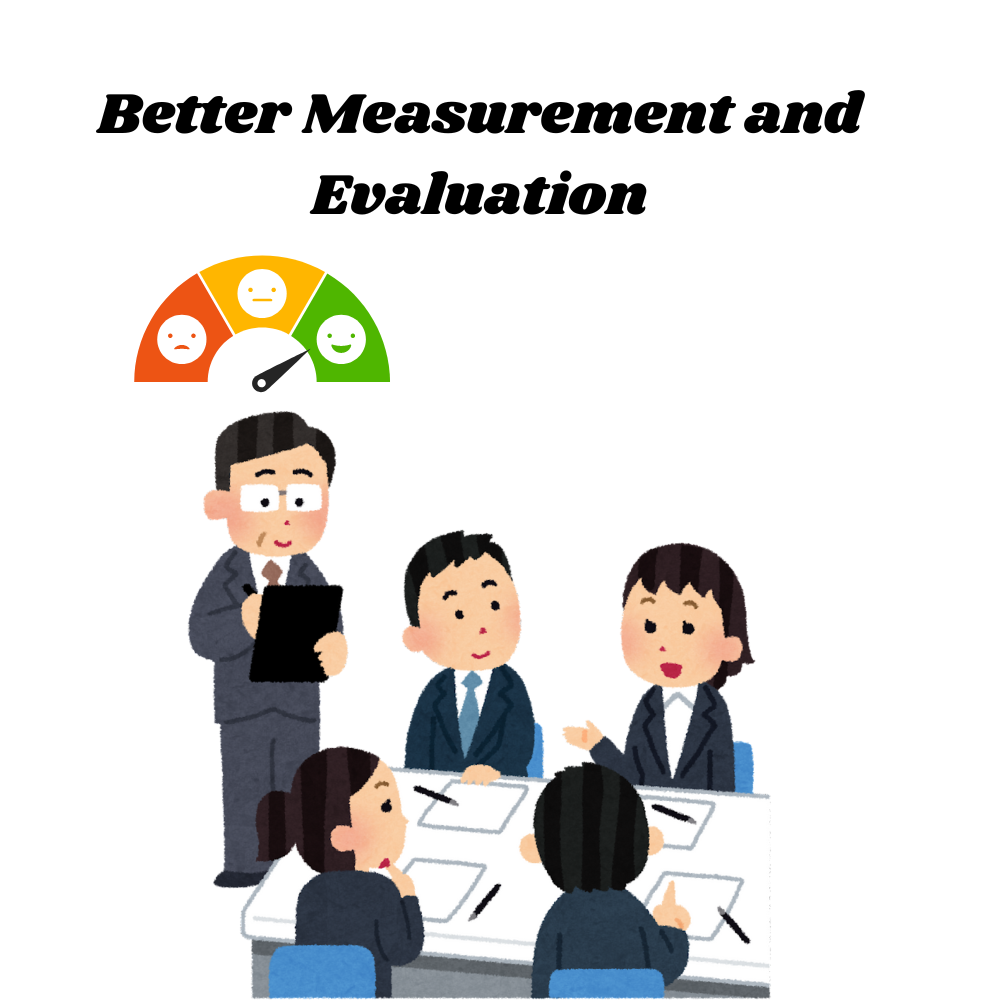In today’s fast-paced digital landscape, small businesses face the challenge of standing out. With countless brands vying for attention, it’s not just about having a great product or service it’s about how you communicate that value to your audience. Enter the marketing communication plan (MCP) a strategic blueprint that outlines how you’ll convey your messages to potential customers.
But is an MCP really necessary for small businesses? The answer is a resounding yes. In this post, we’ll explore the key reasons why having a well-defined marketing communication plan is crucial for small businesses, from improving customer engagement to boosting brand awareness.
Whether you’re a startup looking to make your mark or an established company aiming to refine your messaging, understanding the significance of an MCP is the first step toward effective communication.

What is a Marketing Communication Plan?
At its core, a marketing communication plan is a document that outlines how a business will communicate with its target audience. It encompasses everything from advertising and public relations to social media and customer engagement strategies. The goal of an MCP is to ensure that all marketing efforts are cohesive, consistent, and aligned with the overall business objectives.
An effective MCP takes into consideration various factors, including the target audience, messaging, communication channels, and budget. It serves as a guiding framework for all marketing activities, helping businesses stay focused and organized in their communication efforts.
Demand for Marketing Communication Plans
The demand for marketing communication plans has grown exponentially, particularly among small businesses seeking to establish a strong online presence. According to a recent survey, 70% of small business owners believe that having a well-defined marketing strategy is critical for their success. Additionally, as consumer behavior shifts towards digital platforms, businesses recognize the need to adapt their communication strategies accordingly.
Furthermore, the COVID-19 pandemic has accelerated the shift toward digital marketing, with many small businesses investing in online advertising, social media marketing, and email campaigns. This increased focus on digital channels has created a greater demand for comprehensive marketing communication plans that encompass both online and offline strategies.
The Importance of a Marketing Communication Plan

Clear Direction
A marketing communication plan provides small businesses with a clear direction for their marketing efforts. It outlines specific goals and objectives, ensuring that all communication activities are aligned with the overall business strategy. Without a well-defined plan, businesses may find themselves pursuing disparate marketing initiatives that lack focus and cohesion.
Improved Targeting
One of the key benefits of a marketing communication plan is its ability to improve targeting. By conducting thorough market research and understanding the needs and preferences of their target audience, small businesses can tailor their messages and choose the most effective communication channels.
This targeted approach not only enhances the relevance of their messaging but also increases the likelihood of engaging with potential customers.

Consistent Messaging
Consistency is crucial in building brand recognition and trust among consumers. A marketing communication plan establishes guidelines for messaging across various channels and touchpoints.
Whether it’s through social media, email newsletters, or advertisements, a cohesive messaging strategy ensures that customers receive a unified brand experience. Consistency not only reinforces brand identity but also fosters confidence in the minds of consumers.
Effective Budget Allocation
For small businesses with limited budgets, effective allocation of resources is paramount. A marketing communication plan allows businesses to prioritize their marketing activities based on their objectives and expected return on investment.
By analyzing data and evaluating the performance of different channels, businesses can make informed decisions about where to allocate their budget for maximum impact.

Increased ROI
Investing in a marketing communication plan can lead to a significant increase in return on investment (ROI). Businesses that have a documented marketing strategy are 313% more likely to report success than those without one.
Additionally, companies that prioritize marketing communication are 30% more likely to achieve their revenue goals. By aligning their messaging with customer needs and leveraging data-driven insights, small businesses can maximize the effectiveness of their marketing efforts and drive better results.
Advantages of a Marketing Communication Plan

Enhanced Customer Engagement
A well-executed marketing communication plan can significantly enhance customer engagement. By leveraging multiple channels, such as social media, email marketing, and content creation, small businesses can create meaningful interactions with their target audience.
For instance, using social media platforms to share informative articles, respond to customer inquiries, and initiate conversations not only fosters engagement but also strengthens brand loyalty. According to a recent study, businesses that engage with their customers on social media see a 20-40% increase in customer spending.
Improved Brand Awareness
Brand awareness is essential for small businesses looking to attract new customers. A marketing communication plan helps businesses craft a consistent brand message that resonates with their target audience.
By utilizing various marketing channels, such as digital advertising, public relations, and community events, small businesses can increase their visibility and reach potential customers effectively. According to research, consistent branding across all marketing channels can increase revenue by up to 23%.
Adaptability to Changing Market Conditions

The business landscape is constantly evolving, and small businesses must be able to adapt to changing market conditions. A marketing communication plan provides a structured framework for businesses to monitor industry trends, customer preferences, and competitor strategies.
By regularly reviewing and updating their MCP, businesses can stay ahead of the curve and adjust their messaging and strategies accordingly. This adaptability ensures that small businesses remain relevant and continue to connect with their target audience effectively.
Strengthened Internal Communication
A marketing communication plan not only enhances external communication with customers but also strengthens internal communication within the organization. By involving employees in the planning process and sharing the marketing communication strategy, businesses can create a shared understanding of brand messaging and goals.
When employees are aligned with the marketing communication plan, they become brand ambassadors, contributing to consistent messaging and fostering a positive brand image.

Better Measurement and Evaluation
Measuring the effectiveness of marketing efforts is crucial for small businesses to understand what works and what doesn’t. A marketing communication plan incorporates key performance indicators (KPIs) and metrics to evaluate the success of each marketing initiative. By regularly analyzing data and conducting performance reviews, businesses can identify areas for improvement, optimize their strategies, and achieve better results. According to a recent survey, businesses that implement measurement and evaluation processes see an average increase of 30% in marketing performance.
15 Best Ways to Develop a Marketing Communication Plan
Conduct a Situational Analysis

Before developing a marketing communication plan, it’s essential to conduct a situational analysis. This involves evaluating the current market landscape, identifying competitors, and understanding customer behavior.
By gathering data on industry trends and consumer preferences, small businesses can gain valuable insights that will inform their marketing communication strategy. Tools such as SWOT analysis (Strengths, Weaknesses, Opportunities, Threats) can help businesses assess their internal capabilities and external challenges, providing a solid foundation for their MCP.
Define Target Audiences
Identifying and defining target audiences is a critical step in developing a successful marketing communication plan. Small businesses should segment their audience based on demographics, psychographics, and behaviors. This segmentation allows businesses to tailor their messaging and choose the most effective communication channels for each audience group.
For instance, a small bakery may target health-conscious individuals with gluten-free options while also appealing to families with kid-friendly treats. By understanding the unique needs and preferences of each audience segment, small businesses can create personalized marketing messages that resonate and drive engagement.
Set Clear Objectives
Setting clear objectives is essential for guiding marketing communication efforts. Small businesses should establish SMART (Specific, Measurable, Achievable, Relevant, Time-bound) objectives that align with their overall business goals.
For example, a small clothing boutique may set an objective to increase website traffic by 25% within three months through targeted social media advertising. By having specific goals in place, businesses can measure the success of their marketing communication plan and make necessary adjustments along the way.

Craft Key Messages
Developing key messages is a crucial aspect of a marketing communication plan. Small businesses should identify the core messages they want to convey to their target audience based on their unique selling propositions (USPs). These messages should be clear, concise, and reflective of the brand’s personality.
For instance, a local coffee shop may communicate its commitment to sourcing ethically grown coffee beans and supporting local farmers as part of its key messaging. Consistency in key messages across different marketing channels helps establish brand recognition and trust among customers.
Select Appropriate Channels
Choosing the right communication channels is vital for reaching target audiences effectively. Small businesses should evaluate various channels such as social media, email marketing, website content, and traditional advertising based on their objectives and target audience preferences.
For example, if a small fitness studio aims to reach young professionals, leveraging Instagram for visually appealing posts and targeted ads may be more effective than a newspaper advertisement. By selecting appropriate channels, businesses can maximize their reach and engagement with potential customers.
Establish a Budget
Budgeting for marketing communication activities is essential for small businesses to ensure effective resource allocation. Small businesses should outline the costs associated with each communication channel, content creation, advertising, and any additional tools or software needed for execution.
By carefully planning and budgeting for their marketing communication activities, businesses can optimize their return on investment (ROI) and avoid overspending. It’s important to regularly review and adjust the budget based on the performance and impact of each communication channel.
Create a Timeline

Creating a timeline for implementing the marketing communication plan ensures that activities are organized and executed promptly. Small businesses should outline specific deadlines for each marketing initiative, including content creation, social media posts, and campaigns. This timeline serves as a roadmap,
helping businesses stay on track and ensuring that communication efforts are coordinated and aligned with overall marketing objectives. Utilizing project management tools or calendars can aid in effectively managing and tracking progress against the established timeline.
Implement the Plan
Once the marketing communication plan is developed, it’s time to put it into action. Small businesses should ensure that all stakeholders involved in executing the plan are well-informed and trained on their respective roles and responsibilities. This includes marketing teams, content creators, and customer service representatives who play a key role in communicating with customers.
Monitor Performance
Monitoring the performance of marketing communication activities is crucial for understanding their impact and effectiveness. Small businesses should regularly analyze key performance indicators (KPIs) such as website traffic, social media engagement, email open rates, and conversion rates. By tracking these metrics, businesses can gain insights into which channels and messages resonate most with their target audience.

Adjust as Needed
Based on the performance monitoring and analysis, small businesses should be prepared to make necessary adjustments to their marketing communication plan. This may involve reallocating budget resources to more effective channels, refining key messages based on audience feedback, or exploring new marketing opportunities. The ability to adapt and evolve the plan is essential for staying relevant in a dynamic market environment.
Evaluate Overall Success
At the end of the designated timeframe for the marketing communication plan, small businesses should evaluate their overall success against the established objectives. This evaluation should take into consideration both quantitative data (such as sales figures and website traffic) and
qualitative feedback (such as customer surveys and reviews). By assessing the effectiveness of the plan, businesses can identify areas of improvement and gather valuable insights for future marketing communication strategies.
Gather Feedback
Seeking feedback from customers and stakeholders is invaluable for refining future marketing communication efforts. Small businesses can conduct surveys, interviews, or focus groups to gather insights on customer perceptions, preferences, and experiences with the brand’s communication.
This feedback not only helps identify the strengths and weaknesses of the marketing communication plan but also provides a customer-centric perspective that can guide future strategies.
Stay Informed on Industry Trends

The marketing landscape is constantly evolving, and small businesses should stay informed on industry trends and best practices. Following reputable marketing blogs, attending industry webinars, and participating in professional networks can provide valuable insights and inspiration for enhancing marketing communication strategies.
Staying updated on emerging technologies, changing consumer behaviors, and new marketing tools will help businesses stay ahead of the competition and adapt their communication approaches accordingly.
Continuously Learn and Improve
Developing a marketing communication plan is not a one-time task but an ongoing process. Small businesses should foster a culture of continuous learning and improvement within their marketing teams. By encouraging team members to share insights, experiment with
new approaches, and analyze the outcomes, businesses can enhance their marketing communication strategies over time. Regularly revisiting and refining the marketing communication plan ensures that it remains relevant and effective in achieving business objectives.
Seek Professional Assistance if Necessary
If small businesses lack the expertise or resources to develop and implement an effective marketing communication plan, seeking professional assistance can be a wise investment. Marketing consultants, agencies, or freelancers with expertise in strategic marketing communication can provide valuable guidance and support.
They can help businesses conduct market research, develop targeted messaging, and execute comprehensive marketing campaigns. Collaborating with professionals can accelerate the process and ensure that the marketing communication plan is tailored to the specific needs and goals of the business.
By incorporating these best practices into their marketing communication planning process, small businesses can develop effective strategies that resonate with their target audience, drive engagement, and ultimately contribute to business growth.
Conclusion
In a world where effective communication can make or break a business, a well-crafted marketing communication plan is essential for small businesses looking to thrive. By investing time and effort into developing a comprehensive MCP, businesses can ensure clear direction, improved targeting, consistent messaging, effective budget allocation, and increased ROI. From enhancing customer engagement to adapting to changing market conditions, the benefits of a marketing communication plan are undeniable.
In this blog post, we’ve explored the key reasons why every small business needs a marketing communication plan. We’ve also discussed the advantages it offers, from enhancing customer engagement to improving brand awareness. Finally, we outlined the best ways to develop a marketing communication plan, from conducting a situational analysis to seeking professional assistance if necessary.
Are you ready to take your small business’s communication efforts to the next level? Start by creating a marketing communication plan that aligns with your goals, resonates with your target audience, and drives meaningful results.

Is an Entrepreneur, Business Adviser. He loves to do research on the business and acquire knowledge on the business topic and this knowledge he used in his business. He also believes that sharing is caring that’s why he starts to write for those people who actually need help with the business, marketing, business strategy, skills, and creativity in business topic which is very important for them.


